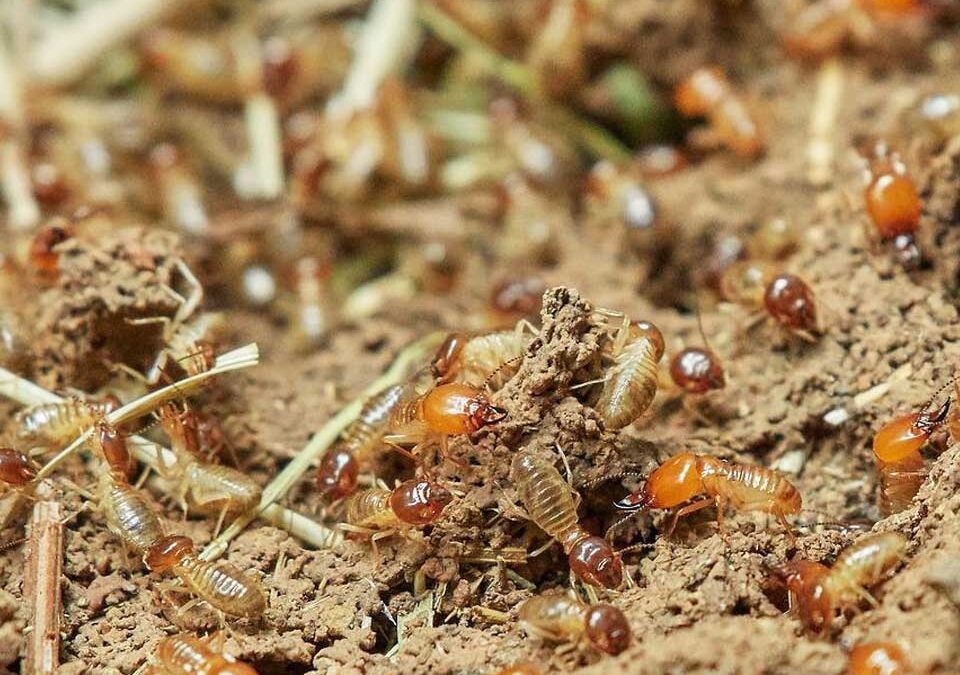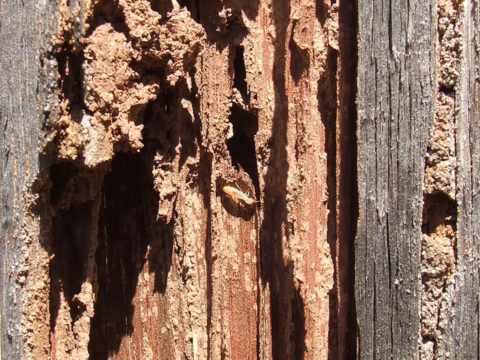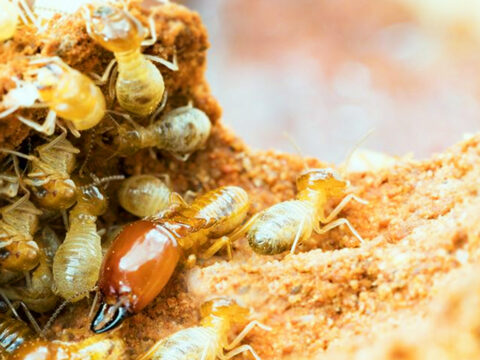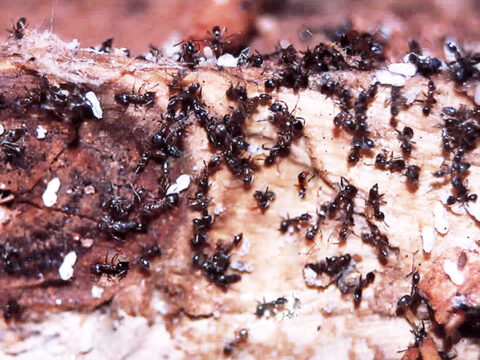
Will Painting Wood Prevent Termites?
April 13, 2022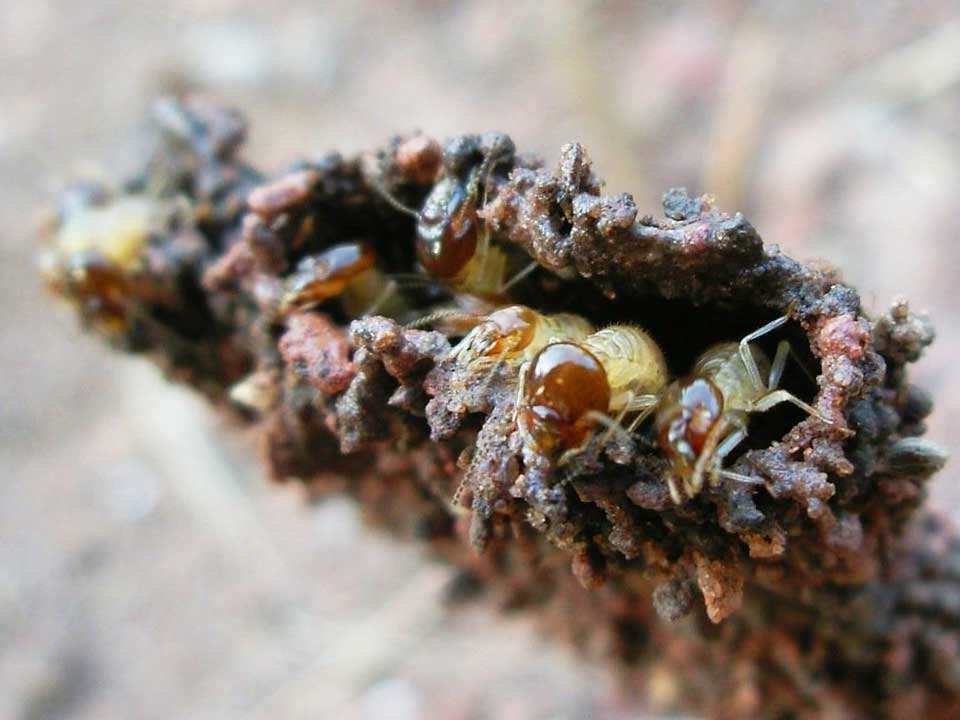
Do Termites Like To Eat Human Food?
June 17, 2022Termites are known to be one of the most destructive pests found in homes. However, they can also easily infest your garden, with all the lovely decorative plants, trees, and crops you grow there.
Seeing termites in the garden means that they have found a good source of food. Termites feed on cellulose, which is the main component of trees, shrubs, plants with harder bodies, woody plants and materials, as well as plant roots.
They typically don’t go for garden plants, however, as these insects thrive in moist places, the continuously watered areas, and damp soil in garden beds or containers provide an ideal nesting ground for them.
Subterranean termites are known to attack any wood that is in direct contact with the soil. They mainly infest trees and potted plants. So if you place your potted plants directly on top of ground soil, subterranean termites can easily access them.
Also, the wooden planks you’re keeping outside on the ground that are exposed to moisture will become a high breeding ground for termites.
There are different types of soil to be found in gardens, for example potting soil, sand, topsoil, peat soil, clay, and more. Hence, the severity of termite infestation will depend on the soil type you have in your yard.
Do Garden Plants And Trees Attract Termites? What Damage Do Termites Cause To Plants?
As termites feed on cellulose, if there are trees or other woody plants in your garden, termites will eat and destroy them. They primarily consume rotten woods that became infested with fungi.
But no matter what the tree species is, and whether it is dead or rotten, it’s prone to termite infestations. Even a dead tree branch is a good opportunity for hungry termites to have an easy meal.
Some trees that are most susceptible to termite attacks include:
- Fruit trees, such as young citrus trees, mango and peach trees, appear to be a prime target for these bothersome insects. Termites will not only munch away at the bark, but also damage the inside of the tree.
- Palm trees, such as foxtails, seem to be among the favorite food for subterranean termites.
Formosan termites usually attack deciduous trees. They don’t just feast on them but will build above ground nests in ash and oak trees that are still alive and healthy. As the colony grows, they’ll be eventually eating away the dry or dead parts of the plant.
Termites also love conifers such as pine trees. Besides feeding on them, these pests use them as habitats, usually parts that are already dead.
Termites are capable of attacking a variety of plants, from the seed to the mature plant. Even though they don’t eat live flowers, their foraging and nesting habits make it difficult for the daisies and bamboo plants to thrive in your garden. These insects can entirely destroy seedlings, which they either cut just below or above the soil surface.
If your garden plants are not woody or these pests cannot find any wood to munch on, they can easily attack plants and their roots. And this will lead to damage and ultimately death of the plant.
Most of the vegetables in the garden are not the perfect food source for termites, but that doesn’t mean that such plants are totally safe and cannot be harmed by termites.
If the conditions are ideal, termites will damage the roots and stems of the crops in your raised garden bed. They thrive in garden beds because of the moisture found in there. Some vegetables that have woody stems and/or tap roots and are therefore susceptible to termite infestation include tomatoes, bell pepper, okra, carrots, beets, and others.
In addition, these pests may start consuming the roots of herbaceous, i.e. green-stemmed plants in your yard if they don’t have access to any woody source of food.
Other factors that can also attract termites include heavy wood chips or mulch. These wood materials provide moisture retention for your plants, keeping the soil moist for longer. The excess moisture from the mulch can be very attractive for termites as it enables them to survive.
It’s also quite common that drywood termites are already infesting the plants you purchase at the store and then bring them to your yard.
How To Get Rid Of Termites In Garden Plants?
It is possible to get rid of these harmful pests in your garden. Just make sure you use only methods that do not involve any chemicals. It’s never a good idea to use chemical pesticides as they can not only kill termites but also other beneficial insects as well as your garden plants and crops.
Therefore, the best option is to use only organic methods.
- This could be attracting beneficial insects or animals that are natural predators that feed on termites. Some of them include ants, beetles, flies, spiders, cockroaches, crickets, centipedes, dragonflies, wasps, ladybugs, lizards, and frogs. The more termite enemies you have hanging around your yard, the smaller the termite population you will have.
- Opt for having some plants that will keep termites away. These pests hate the scent of marigolds, catnip, geranium, mint, vetiver grass, lemongrass, or garlic, among others. Some plants do not repel the termites directly, but attract other bugs that eat them.
- Vinegar is a safe product that can be found in almost any kitchen or you can get it from your local store for a few bucks. Using vinegar to eliminate termites will pose no risk of contaminating your garden with toxic chemicals.
- Orange oil is extracted from orange peels and is well-known for naturally killing termites. What’s more, it works wonders without harming plants. Prepare a spray and use it on areas where termites are present. Otherwise, drill holes into the infested wood and pump the oil into them. You could also pump the orange oil into trees infested with termites as it won’t harm these trees.
- Another way to get rid of termites in garden plants is to use beneficial nematodes, which are microscopic, worm-like parasites. They actively hunt, feed on, and kill pests that live in moist and dark places.
Searching for a local company to exterminate termites without killing the plants in your garden?
Chem Free Exterminating has provided exceptional termite pest control services in Orange County, California for over 30 years! So if you have or suspect you may have a termite infestation in your yard, or home, and are interested in receiving a superior termite treatment, contact us today to learn about your options or request an inspection.

